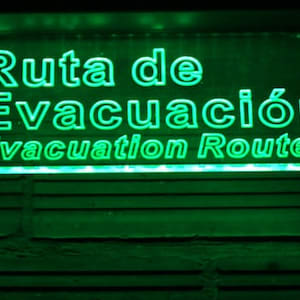let fly: Idiom Meaning and Origin
What does ‘let fly’ mean?
The idiom "let fly" means to release or throw something forcefully or with great speed. It can also refer to speaking or expressing oneself freely and without restraint.

Idiom Explorer
The idiom "let someone go" means to allow someone to leave or end a relationship, usually in a work context, such as firing an employee or ending a romantic relationship.
The idiom "let slide" means to intentionally ignore or disregard something, usually a mistake or an offense, without taking any action or expressing disapproval.
The idiom "let one's hair down" means to relax or be less formal or restrained, often in a social setting.
The idiom "let one go" means to release gas or fart. It is a slang expression often used to talk about passing gas in a humorous or lighthearted way.
The idiom "let off" means to release or allow someone to escape punishment, usually in a lenient or forgiving manner.
The idiom "let loose" means to allow someone or something to be free or unleashed. It can also mean to relax, have fun, or engage in uninhibited behavior. This expression is often used to describe a release of emotion or energy.
The idiom "let it be" means to leave something alone or to not interfere with a situation. It suggests accepting or allowing things to happen without trying to control or change them.
The idiom "let it all hang out" means to be completely uninhibited or to openly express one's emotions, thoughts, or desires without holding back. It implies being authentic and unrestricted in one's behavior or communication.
The idiom "let go and let God" means to surrender control and trust in a higher power or fate to handle a situation. It suggests releasing worries and anxieties, accepting things that cannot be changed, and having faith in a divine plan or intervention.
The idiom "let drive" means to give someone free rein to do something or to allow them to act with full force or intensity.
Hidden Wings Unleashed
Let fly is used in informal situations, it has been in use for several centuries and is still commonly used in modern-day conversations.
One common use of let fly is to describe the act of releasing or throwing something with great force or intensity. This can refer to physically launching an object through the air or metaphorically expressing emotions or opinions with energy and vigor.
Another common usage of let fly is to describe the act of releasing anger, frustration, or criticism towards someone or something. This expression implies a lack of restraint or inhibition and suggests that the person is speaking or acting impulsively and without thinking.
Additionally, let fly can also describe the act of flinging oneself or moving quickly and forcefully in a particular direction. This implies a sudden and unexpected movement, as if propelled by a strong impulse or desire.
The origins of let fly are unclear but its continued usage suggests its significance in American English. This idiom captures the essence of uncontrolled action, passionate expression, and impulsive movement.
fly off is a related idiom that means to suddenly leave or depart from a place or situation. It can be used interchangeably with let fly when describing the act of flinging oneself or moving quickly in a particular direction.
let loose is another related idiom that means to set free or release something, whether it be physical or metaphorical. It is similar to let fly in that it implies an uncontrolled or unrestrained action.
cut loose is yet another related idiom. It refers to breaking free from constraints or inhibitions and acting without restraint. Let fly can be used in a similar way to describe someone expressing their emotions or opinions freely without inhibitions.
Another related idiom is let drive, which means to propel oneself or someone else forward with force or intensity. This aligns with the usage of let fly to describe a sudden and forceful movement in a particular direction.
Let fly is an idiomatic expression with a variety of meanings. It can refer to physically throwing or launching something with force, expressing emotions or opinions with intensity, or moving quickly and forcefully in a particular direction. The origins of this idiom remain uncertain, but its continued usage demonstrates its significance in American English. Let fly captures the essence of uncontrolled action, passionate expression, and impulsive movement.
Example usage
Examples of how the idiom let fly can be used in a sentence:
- He was so angry that he let fly a series of expletives at his boss.
- The goalkeeper let fly a powerful kick that went straight into the opponent's goal.
- When the protesters saw the politician arrive, they let fly their banners and signs in peaceful protest.
More "Aviation" idioms



